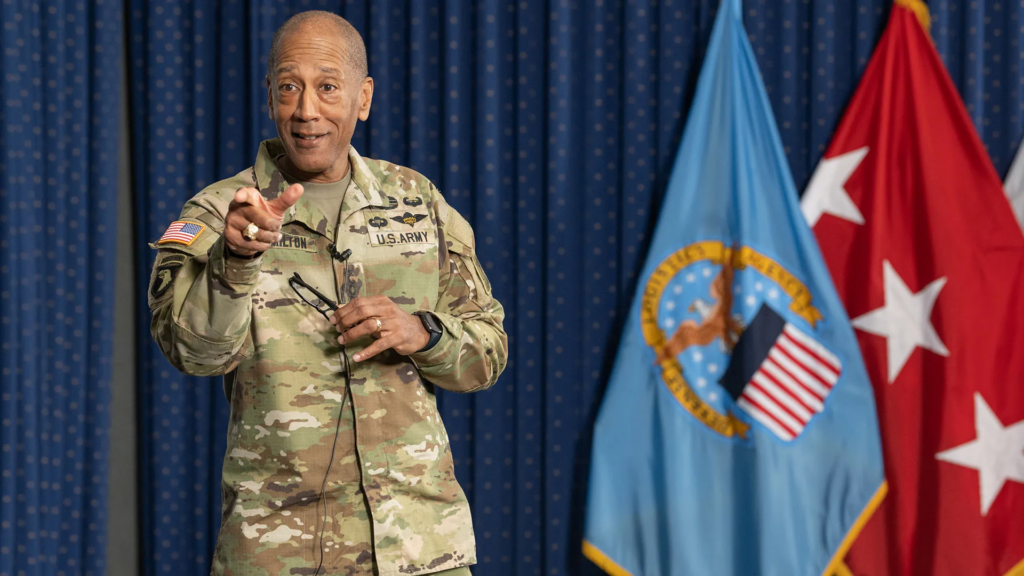Army Investigates Allegations of Bias and Undue Pressure in Command Selection
Investigation Reveals Improper Advocacy for Officer
Army Secretary Christine Wormuth has fired Gen. Charles Hamilton, a four-star general, following an investigation into his involvement in influencing the selection process for a subordinate officer’s promotion. Hamilton was the commander of Army Materiel Command before being suspended during the investigation. The probe examined claims that Hamilton tried to push a lieutenant colonel he mentored into a command position, despite the officer’s lack of readiness.

Army Gen. Charles Hamilton
U.S. Army Gen. Charles Hamilton presides over a change of command ceremony in July 2023. Army photo by Adam Sikes.
Hamilton’s Advocacy and Claims of Bias
Hamilton has denied accusations of improper influence, insisting his efforts were transparent and aimed at addressing systemic bias within the Army. He argued that the Command Assessment Program (CAP) failed to account for the challenges faced by minority officers, including the lieutenant colonel. The general emphasized the psychological effects of systemic racism, citing his mentorship of the officer as part of his broader effort to combat these biases.
Evidence of Unusual Actions and Preferential Treatment
The investigation found multiple instances where Hamilton used his position to assist the lieutenant colonel. He awarded her a prestigious Legion of Merit, typically reserved for higher-ranking officers, and took unusual steps to ensure her selection. Hamilton personally involved himself in her assessment process, including contacting panel members and advocating for her re-paneling after an unfavorable review. These actions raised concerns about the integrity of the selection process and the potential for bias.

Army Gen. Charles Hamilton addressing attendees of the Global Customer-Facing Summit at Fort Belvoir, Virginia. in April 2022. Defense Logistics Agency photo by Christopher Lynch
Controversial Mentorship and Lack of Transparency
The investigation uncovered a close, “overly familiar” relationship between Hamilton and the lieutenant colonel, although no definitive evidence of a sexual relationship emerged. Despite Hamilton’s insistence that his actions were motivated by a desire to address bias, investigators concluded that he had improperly influenced the process. Hamilton’s outreach to senior leaders to override panel decisions further exacerbated the issue. The investigation determined that his efforts undermined trust in the Army’s command selection procedures.
Hamilton’s removal highlights the importance of maintaining the integrity of military processes, especially when concerns about bias and preferential treatment arise. While the general maintains his actions were transparent, the investigation reveals that his influence compromised the selection process, causing significant concern within the Army.
Our Visitor






 Users Today : 39
Users Today : 39



